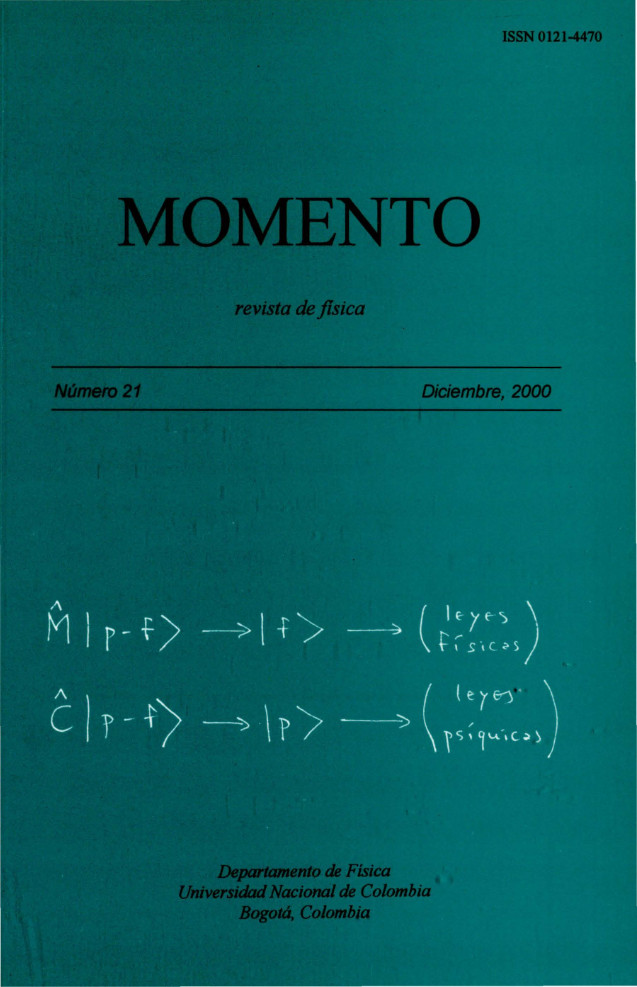¿Qué es la filosofía de la ciencia? el caso de la física cuántica
Keywords:
Filosofía de la ciencia, física cuántica, M. Planck (es)Philosophy of science, quantum physics, M. Planck (en)
Downloads
A través de cinco pasos argumentativos, el autor toma distancia de la concepción clásica de la filosofía de la ciencia y que se origina en la filosofía analítica, y propone un modelo diferente de lo que es y debe ser la filosofía de la ciencia. Para ello, toma como caso de estudio dos problemas: qué es la física cuántica y cómo surge. A la luz del estudio del surgimiento, desarrollo y significado de la física cuántica, se derivan conclusiones claras que son generalizadas en un nuevo esquema de lo que debe ser el diálogo entre la ciencia y la filosofía
Through five different arguments, the author rejects the classical conception of philosophy of science, whose origins are found in the tradition of analytical philosophy. Hereby, he proposes a different model of what philosophy of science should be. In order to achieve this, he takes as a case the analysis of both the nature and the origins of quantum physics. Thanks to the study of the origins, the development, and the meaning of quantum physics, several clearconclusions are derived, which can be generalized in a new scheme showing how the dialogue between science and philosophy should work.
How to Cite
APA
ACM
ACS
ABNT
Chicago
Harvard
IEEE
MLA
Turabian
Vancouver
Download Citation
Article abstract page views
Downloads
License
Those authors who have publications with this journal, accept the following terms:
a. The authors will retain their copyright and will guarantee the publication of the first publication of their work, which will be subject to the Attribution-SinDerivar 4.0 International Creative Commons Attribution License that permits redistribution, commercial or non-commercial, As long as the Work circulates intact and unchanged, where it indicates its author and its first publication in this magazine.
b. Authors are encouraged to disseminate their work through the Internet (eg in institutional telematic files or on their website) before and during the sending process, which can produce interesting exchanges and increase appointments of the published work.




















